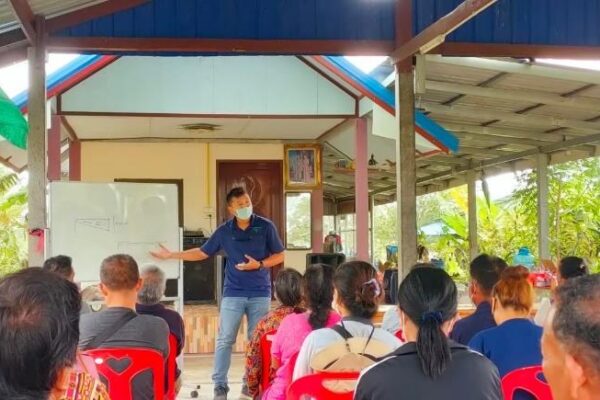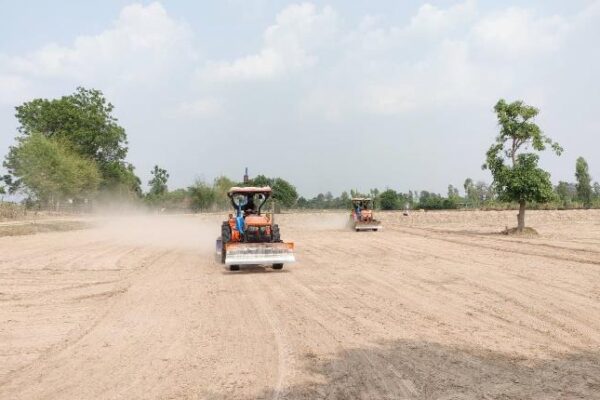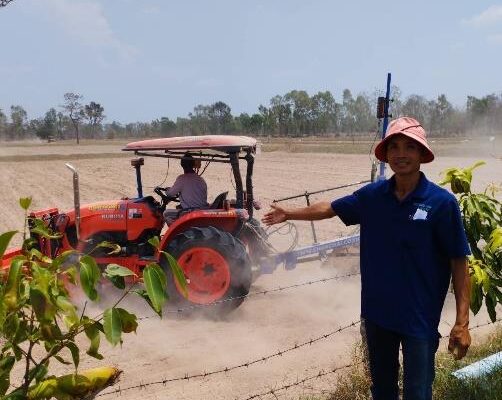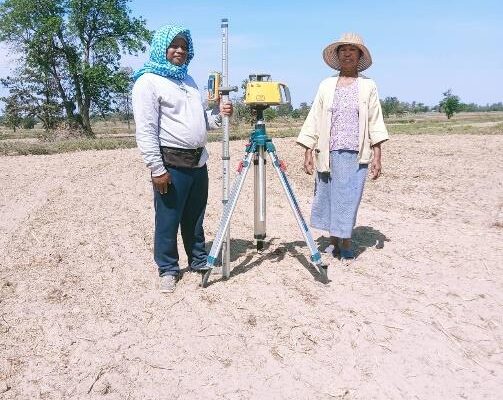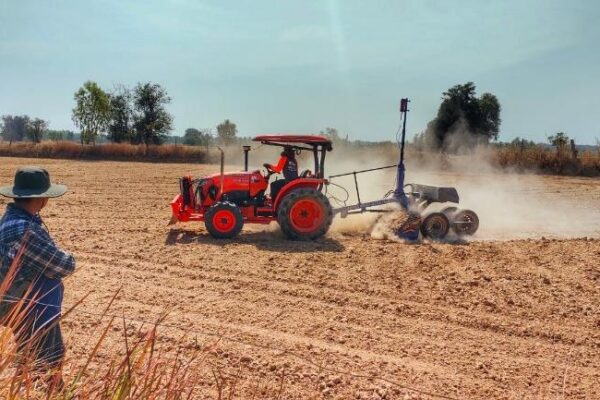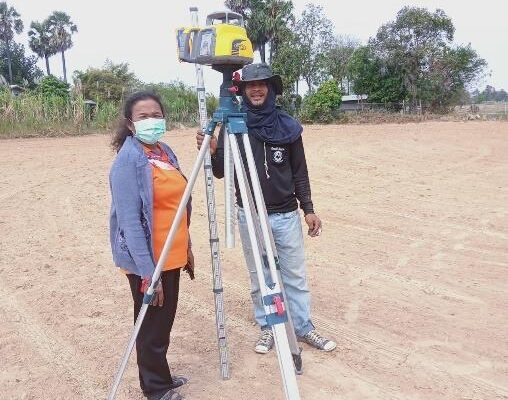Amidst sun-kissed fields, Fairtrade’s commitment unfolds in a mission to cultivate resilience and prosperity among rice producers. The mission: to cultivate a resilient economic foundation for the farmers, amplify the efficiency in productivity, and strengthening the organization cooperation. The land levelling project under global warming resilience project organized by fairtrade NAPP in Organic Agriculture Social Enterprise Innovators of Surin (OASIS), Thailand is a testament to this mission. It aimed to reduced water consumption and the time of using the hand pumps by adjusting the level of the rice fields. This, ultimately, increases productivity by enabling efficient management of rice fields, water management, weed management.

A total of 60 farmers, comprising 23 males and 37 females, benefitted from support by employing a laser system to level the land, spanning across a combined area of 302.25 rai for rice fields. Subsequently, 6 follow-up surveys were conducted to assess the impact and effectiveness of the laser system in land levelling. Recognizing the need for additional help, 679 producers comprising of 279 males and 400 females benefitted from an organic farming and climate change training.
“I have been trying to use a tractor levelling the fields for many years but it hasn’t been working until we tried adjusting the rice fields with OASIS land levelling project. Water management in the field has become easier since water is released from one corner and the entire rice field fill with water because our field is levelled. I am confident that this technology bring benefit to farmers because it makes my farming easier. – Mrs. Puangthong Chinnak, Organic Agriculture Social Enterprise Innovators of Surin.
The technical team played a pivotal role in garnering interest from the members by disseminating information and advocating for the land levelling. Those producers intrigued by the initiative enlisted their participation in the project. The registered list of producers was later presented during the team meeting. Subsequently, the team organized a comprehensive training session that guided tractor drivers through the intricacies of handling and operating the laser machines. The training also encompassed diverse knowledge domains that offered insights into the utilization of various devices. As part of the project, 15 rice yield data produced from levelled land were collected.
The initiative has yield both immediate outcomes while enduring long lasting impacts that resonate with the core objectives in the following ways:
1. Members now actively embrace organic farming practices that fosters a sustainable approach to agriculture.
2. With levelling of paddy lands, 60 members demonstrate a commitment to resource optimization through the efficient utilization of water.
3. A heightened awareness succeeds among members that promotes judicious water use and reduced greenhouse gas emissions.
4. The project actively imparts comprehensive knowledge about the causes and impacts of climate change to members, youth, and staff.
5. Positive shifts characterize the financial landscape as members experience increased income through reduced investments in time and inputs, coupled with enhanced paddy productivity.
6. Strengthening the collaborative fabric between the SPO and its members actively underscores a collective commitment to sustainable agricultural practices.
This concerted effort is not just to transform landscapes but to elevate lives by increasing productivity, fostering efficiency, and nurturing a community united in purpose. This ultimately plays an important role in mitigating the impact of climate change. In every water droplet saved, the narrative of sustainable growth and shared prosperity echoes through the fields of the organization.
“I learn from the project that the benefits from adjusting the rice fields with the laser system is helping us reducing water usage. For an area of 0.8 ha, additional water is required to be added to the plot by pumping 4,800 cubic meters of water from a pond. After adjusting the rice fields to be leveled, I added only 800 cubic meters of water to the plot. I was able to reduce water usage by up to 83.3% and there was water throughout the plot, making it easier for me to manage weeds.” – Mr. Mongkol Somwang, Organic Agriculture Social Enterprise Innovators of Surin.


